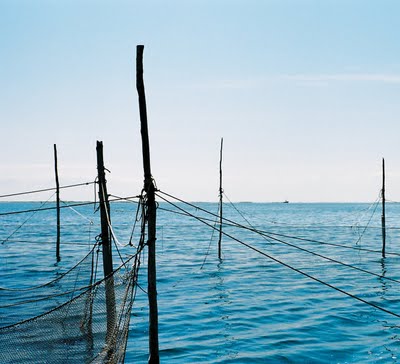Sometimes I learn about the details of a community's development in the most random ways. My family gets together every summer on Cape Cod, as do thousands of families from New England and beyond. The “Cape,” as the area is known, is much valued for its beaches, ponds, fresh fish, and quaint houses and businesses adorned with clapboard siding. While I do like these aspects of the Cape, I am more aware every time I come of how much of it has become a traffic-choked mess strewn with the same ugly sprawl development one sees everywhere else in the country.

Fishing in general has all but disappeared as a means of supporting a family on the Cape, despite the fact so many people come to the Cape every summer and consume massive quantities of fish. In its place is a largely service-based economy that pays low wages to people who toil in the tourist trade, whether as wait staff and cooks; operators of mini-golf courses; or in some other comparable role. This economy is all that most visitors see of the working Cape, and one could be forgiven for assuming the region was the brainchild of a Walt Disney type of figure.
Yet the people who live year-round on the Cape know how critical fishing is to their communities’ history as well as their future. A few years ago the town of Harwich was on the verge of losing its only public access to its river, because the dock there was in disrepair. Descendants of Captain Wixon came forward to help fund a new dock, to ensure that if someone in town wanted to engage in commercial fishing, they would be able to get a boat in the water.
As with so many places, the economic heart of a community is often invisible on the surface. I suppose the fishing industry isn’t likely to grow back into the mainstay it once was. But maybe a community-based fishery, or some other grassroots initiative, can create more opportunities for more local workers. Every day, as tourists and second home people sit in traffic along the Cape’s narrow, windy roads, the people who do the Cape’s work pedal their bikes alongside them. How great would it be if visitors could use their dollars to support the rich history and potential of the local fishing industry in their midst, and the workers could benefit from this?
More:
- Cape Cod Fish Share
- “Fishing for the Real Story of Cape Cod,” UConn Today, October 31, 2011





Comments